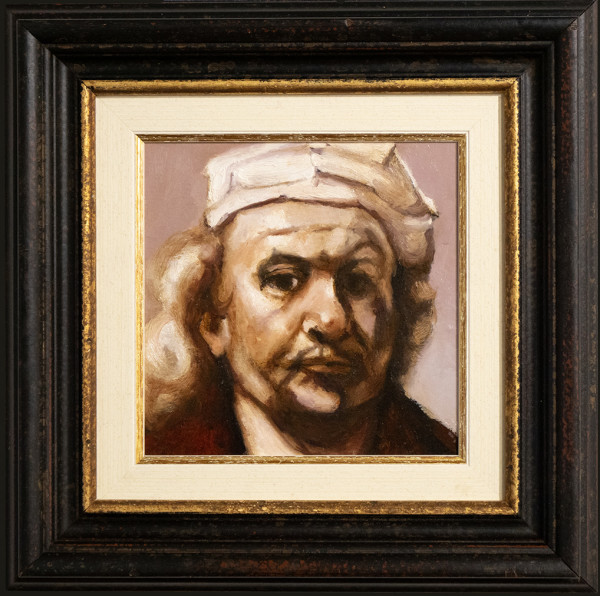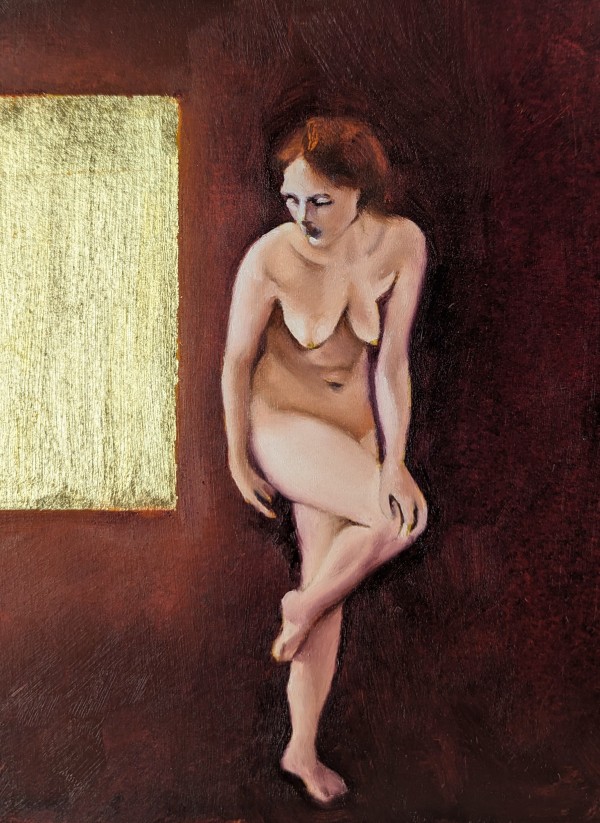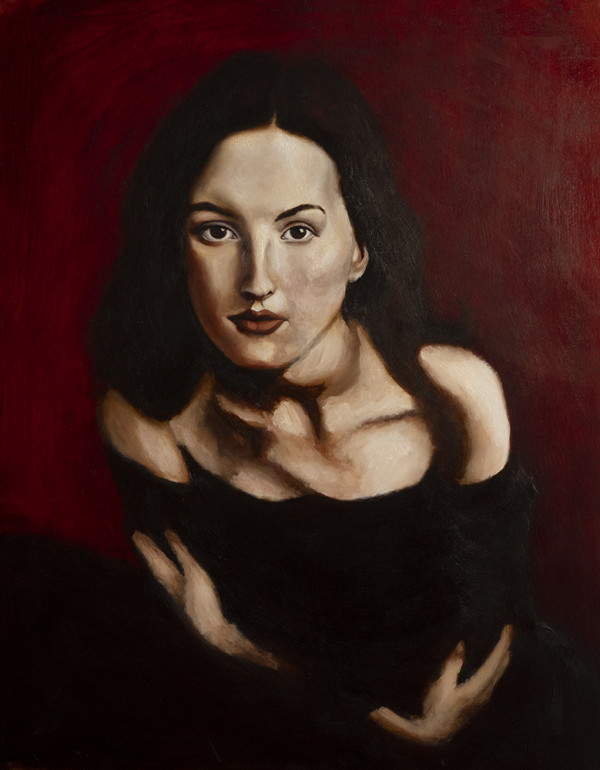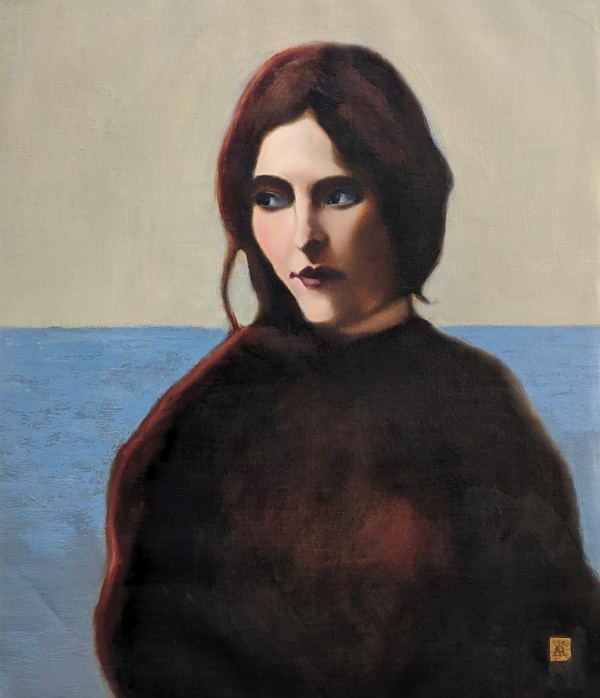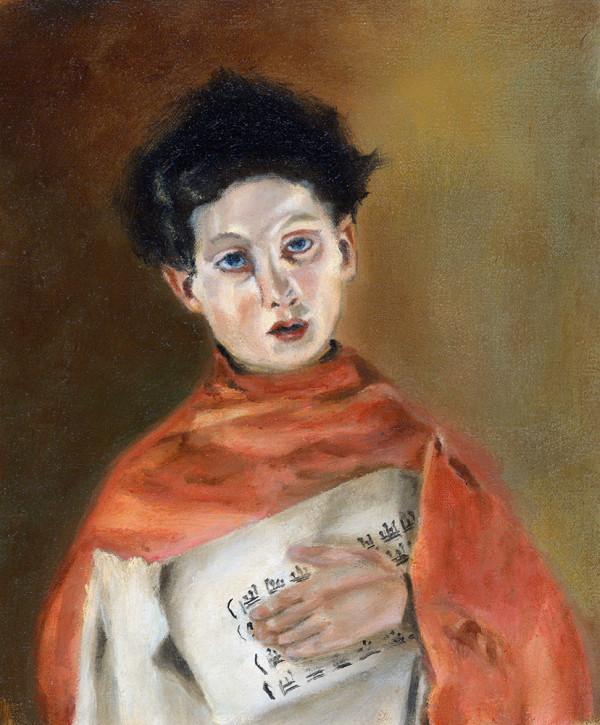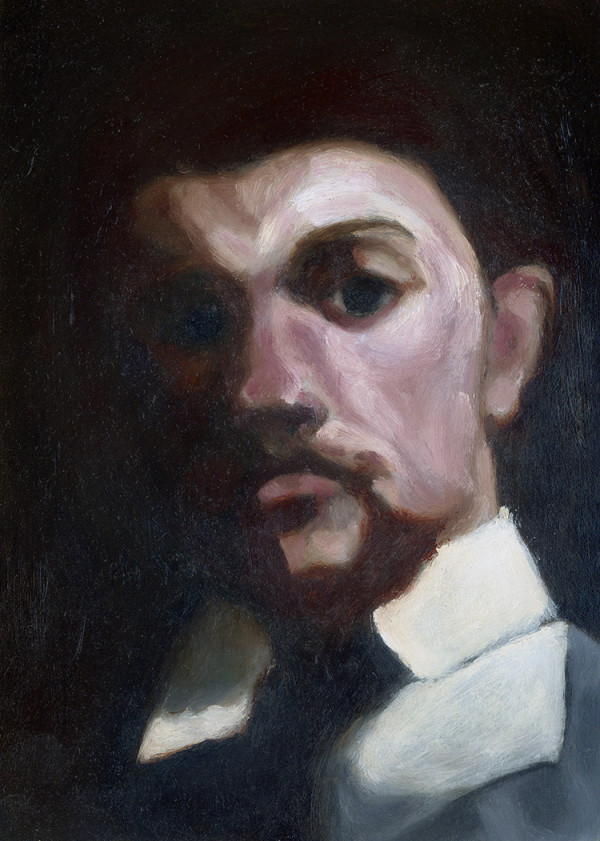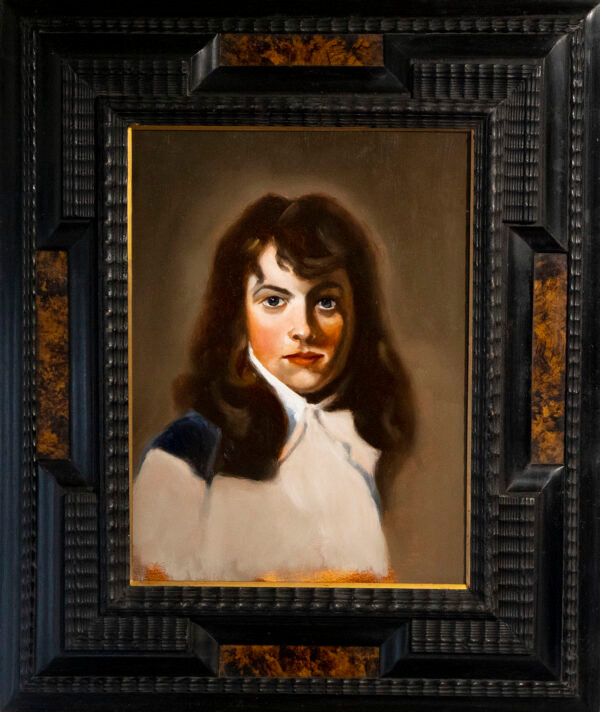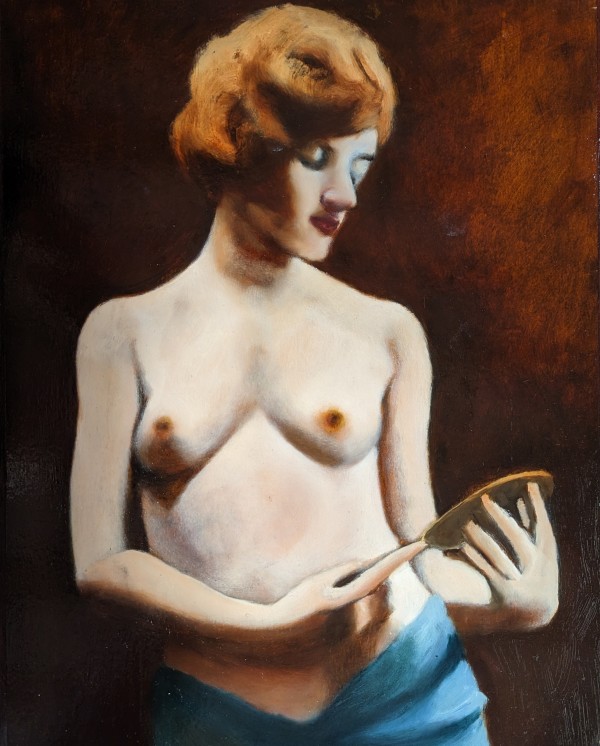- André Romijn
- Rozenhof, 2025
- Pastel
- 22 x 24 cm (8.66 x 9.45 in)
- €195
-
Sold
In Rozenhof (Rose Garden), André Romijn captures a remarkably intimate moment using the soft, nuanced language of pastel: a nude woman engaged in the simple act of hanging laundry, surrounded by blooming roses and bathed in summer light. The title, evoking a “rose garden,” suggests a secluded space where vulnerability and sensuality coexist in quiet harmony.
What sets this drawing apart is its fusion of physical immediacy with poetic stillness. The figure is depicted from behind, which subtly shifts the viewer’s role from voyeur to silent observer. This angle preserves the model’s autonomy — she is not objectified but entirely absorbed in her own world.
The composition is skilfully structured: light falls across the back and shoulders in a way that accentuates the body’s form while casting a warm glow over the pink fabric. Skin tones and cloth seem to melt into each other, yet the image remains clearly articulated. The cooler greens and blues act as anchors, grounding the scene in a garden-like setting. The roses above — gently bursting into bloom — seem symbolic of femininity, vitality, and natural cycles.
Romijn demonstrates a deft command of pastel here: the figure’s skin is built up through delicate layering, creating a lifelike yet painterly surface. The overall impression is sensuous, but never overt — a celebration of presence rather than provocation.
On a thematic level, Rozenhof is more than a classical nude: it’s a meditation on perception, intimacy, and the understated beauty of the everyday. It invites the viewer to slow down and reattune to the simple act of looking — a sensory moment, frozen in time.
One particularly striking element is the pink cloth: it hovers between domesticity and sensuality, reinforcing the ambiguity at the heart of Romijn’s work. In Rozenhof, the female body is portrayed as strong, dignified, and deeply human — seen not through the lens of desire, but through that of quiet reverence.




